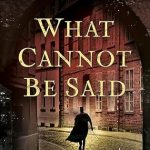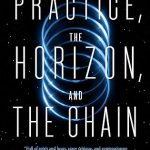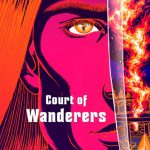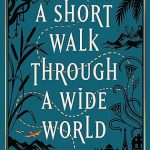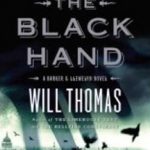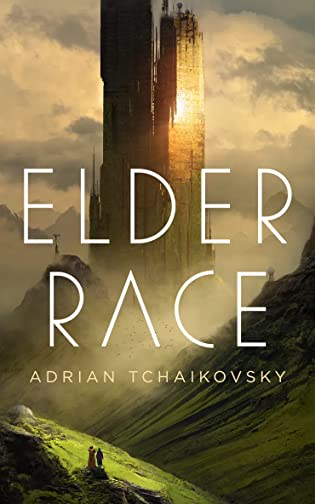 Elder Race by Adrian Tchaikovsky
Elder Race by Adrian Tchaikovsky Format: eARC
Source: supplied by publisher via NetGalley
Formats available: paperback, ebook
Genres: fantasy, science fiction, space opera
Pages: 176
Published by Tordotcom on November 16, 2021
Purchasing Info: Author's Website, Publisher's Website, Amazon, Barnes & Noble, Kobo, Bookshop.org
Goodreads
In Adrian Tchaikovsky's Elder Race, a junior anthropologist on a distant planet must help the locals he has sworn to study to save a planet from an unbeatable foe.
Lynesse is the lowly Fourth Daughter of the queen, and always getting in the way.
But a demon is terrorizing the land, and now she’s an adult (albeit barely) and although she still gets in the way, she understands that the only way to save her people is to invoke the pact between her family and the Elder sorcerer who has inhabited the local tower for as long as her people have lived here (though none in living memory has approached it).
But Elder Nyr isn’t a sorcerer, and he is forbidden to help, for his knowledge of science tells him the threat cannot possibly be a demon…
My Review:
No one believes there really is a demon attacking the borders of her mother’s kingdom, except for the Queen’s frequently ignored fourth daughter. Because Lynesse, the disrespected and disregarded Fourth Daughter of the Queen, believes in the old hero tales of her ancestors. So when a demon attacks the borders of the kingdom, Lynesse goes to the tower of Nyrgoth Elder, the great sorcerer who helped her great-grandmother defeat a demon over a century ago.
Because Nyrgoth, rather foolishly in his own opinion, promised Astresse that if she, or any descendants of her line, called upon him in his remote tower and requested his aid, he would answer. Even though he knows he shouldn’t.
Even though he secretly hoped that she would come herself, and soon, to rescue him from his profound loneliness. Just before he went back into the deepest of sleeps for another century, only to be awakened by the great-granddaughter of the woman he loved to face a promise he should never have made.
If this sounds like fantasy, it is. But it’s also science fiction, part of a long and storied list of works where Earth seeded other planets by sending out colony ships to far distant worlds – and then forgot about them, one way or another.
And those colony worlds, either deliberately or through the fullness of time, distance and absence, forgot that once upon a time their ancestors traveled the stars.
Like Pern, and Darkover, and Harmony and Celta, among many others, the descendants of those colonists lost the knowledge of how to use the high-tech that brought them, or deliberately buried that aspect of their history, until something happens to remind them. Either by discovering the wreck of the original ship, as occurred in both Pern and Celta, by rediscovering the documentation, a la Harmony, or by Earth ships returning to reclaim their lost colony – only to learn that their supposedly lost colony wants little or nothing to do with them, as was the case in Darkover.
Elder Race represents an entirely different possibility, one that will be familiar to anyone who remembers the Star Trek Next Gen episode “Who Watches the Watchers”, where a Federation science outpost is observing a proto-Vulcan culture as an anthropological study. The planetary inhabitants are not supposed to know they’re being watched, but technology glitches and damage control ensues in an attempt to minimize the cultural contamination that was never supposed to have happened in the first place.
Nyrgoth, actually Anthropologist Second Class Nyr Illim Tevitch, takes the place of the Federation in Elder Race. Earth sent a team of sociologists and anthropologists to Sophos 4 to observe the progress of the colony that had been implanted centuries before, had no knowledge of their high-tech origins, and had returned to a much lower level of technology than the one they came from.
But his team returned to Earth centuries ago. As often happens in lost colony stories, Earth was in a crisis and sent a recall. Nyr was left behind, in the belief that his teammates would return in the not too distant future. Which hasn’t happened yet and Nyr no longer has any expectation that it ever will.
He’s done his best to maintain his mission. Except that one time when Astresse banged on the door of his tower, dragged him out of said tower to fix something that was a direct result of the high-tech left behind by the original colonization, and pretty much broke his heart when she went to rule her now-safe kingdom and he took himself back to his lonely tower because that was what he was supposed to do.
Now one of Astresse’s descendants has banged on his door, intending to remind him of his promise but inadvertently reminding him that he’s all alone on this world and that his choices are limited to putting himself out of his own misery, going mad with loneliness, or admitting that his mission is over and it’s time to join the world he has instead of mourning for the one that has forgotten him.
If he can just find a way to get rid of this pesky bit of hybrid technology that is masquerading as a demon, before the situation gets more FUBAR’d than it already is..
Escape Rating A+: The story in alternates from fantasy to SF and back again as it switches its point of view from Lynesse to Nyr and we see from inside their heads how vastly different their worldviews are.
But no matter whose eyes we’re using to see the world, their emotional landscape is surprisingly similar while being not just miles but actually lightyears apart at the same time. There’s a point in the story where Nyr attempts to tell Lynesse the unvarnished truth about her world and his place in it, but the chasm between their respective understandings is so huge that no matter what he says, she still hears his story in the terms that she understands, terms of myth and legend, tales of heroes and demons, and magic capable of changing or destroying her world.
While Nyr is constantly aware that the only magic he is capable of is of the Clarke variety, the kind that “all technology, sufficiently advanced, is indistinguishable from.”
In the end, this felt like a story about opposing beliefs and perceptions. She believes he’s a great wizard. He believes he’s a second-class and second-rate anthropologist. She believes he’s a hero out of legend. He believes that she’s the hero and that he’s a faker, a failure, or both. She believes that he can save her people, because she’s not capable of doing it herself. He believes that she’s every bit the hero that her great-grandmother was, and that he’s just along for the ride.
They’re both right, and they’re both wrong. They are also both, in spite of appearances, very, very human.
One of the best things about this story is the way that they manage to save the day, fight their own demons, and ultimately develop a strong and sustaining friendship that never trips over the line into the possibility of romance. Because it really, really shouldn’t. They’re too far apart and too unequal in too many ways for that to work. Instead, they hesitantly reach towards a friendship that is strong and true and forged in fire – and looks to be the saving of each of them.
And it’s a terrific read that manages to be both perfect in its relatively short length while still leaving the reader wishing there were more.




